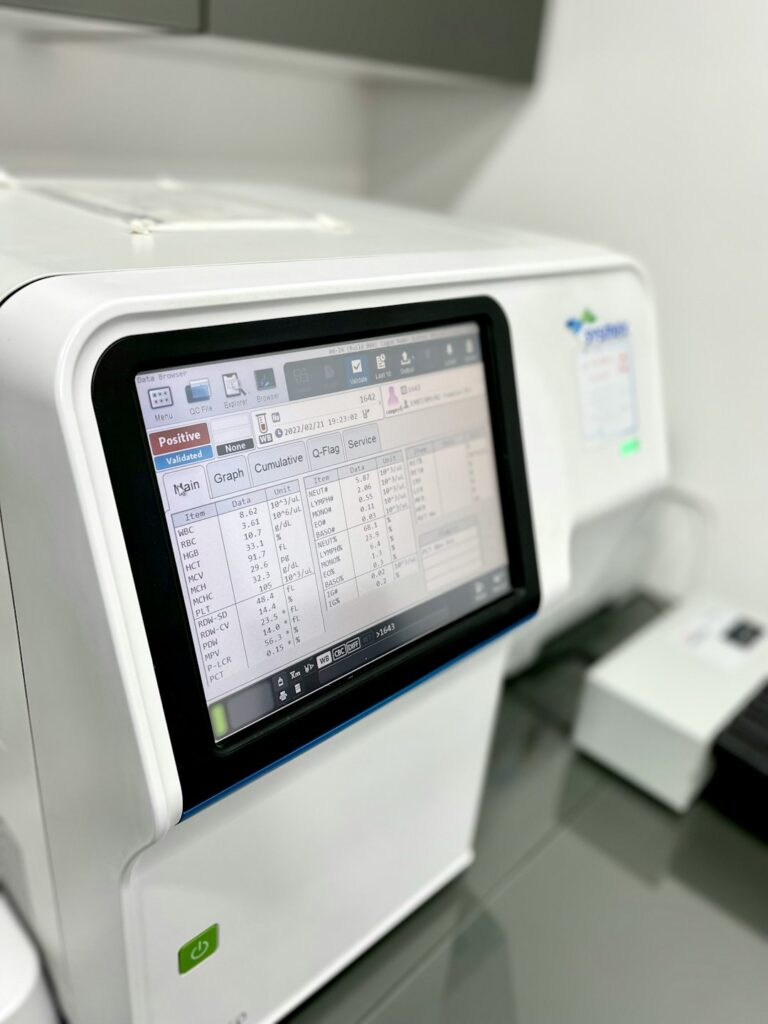AI Health Diagnostics Software: Transforming the Future of Healthcare
In the evolving realm of healthcare, AI health diagnostics software is playing a pivotal role in enhancing patient care and streamlining medical processes. These innovative tools leverage advanced machine learning algorithms and vast datasets to provide healthcare professionals with insights that were previously unattainable. As the healthcare industry continues to embrace technological advancements, understanding the capabilities and benefits of these AI tools is crucial for both practitioners and patients alike.
The Significance of AI Health Diagnostics Software
AI health diagnostics software is designed to analyze medical data efficiently and accurately. By integrating with existing healthcare systems, these tools help clinicians make informed decisions about patient diagnoses and treatment plans.
Enhanced Accuracy in Diagnoses
One of the primary advantages of AI diagnostics software is its ability to improve accuracy. Traditional diagnostic methods often rely on human interpretation, which can be prone to errors. AI systems, on the other hand, utilize vast amounts of clinical data to provide real-time, evidence-based recommendations. For instance:
- Image Analysis: AI algorithms can analyze medical images such as X-rays and MRIs with a level of precision that surpasses traditional methods.
- Disease Prediction: Predictive analytics powered by AI can identify the likelihood of diseases based on patient history and biomarkers, allowing for early intervention.
Efficiency and Time Saving
With the increased demand for healthcare services, AI tools offer a way to enhance efficiency. By automating routine tasks and assisting in diagnosis, these systems free up healthcare professionals to focus on direct patient interactions. This results in:
- Reduced Wait Times: Faster diagnoses lead to quicker treatment initiation, improving patient outcomes.
- Resource Management: Better use of medical resources as AI tools can identify high-priority cases that need immediate attention.
Popular Types of AI Health Diagnostics Software
The market offers various AI tools tailored to different aspects of health diagnostics. Here are some of the most impactful types:
Imaging and Radiology Software
AI health diagnostics software in imaging uses deep learning techniques to enhance the interpretation of radiological images. For example, tools like Zebra Medical Vision and Aidoc are designed to assist radiologists in identifying anomalies, thereby optimizing the workflow and accuracy of diagnoses.
Predictive Analytics Platforms
These platforms analyze patient data and historical trends to predict future health risks. For instance, companies like Tempus and PathAI utilize AI health diagnostics software to offer insights that help in personalized medicine approaches, ensuring that patients receive treatments that are most likely to succeed based on their unique data.
Challenges and Considerations
While AI health diagnostics software provides numerous benefits, there are also challenges that healthcare providers must consider:
Data Privacy and Security
Handling sensitive patient data comes with serious responsibilities, and ensuring data privacy and security is paramount. Regulatory compliance with data protection laws, such as HIPAA, is essential to maintaining patient trust.
Integration with Existing Systems
Incorporating AI tools within current healthcare infrastructures can be complex. It requires substantial investment and training for staff to effectively utilize these technologies. Providers must evaluate the return on investment and potential improvements in patient outcomes.
The Future of AI Health Diagnostics Software
The future of AI health diagnostics software lies in further advancements in technology and increased acceptance among healthcare professionals. Continuous learning algorithms will enhance the accuracy and capabilities of these tools, leading to:
- Increased Personalization: Tailoring diagnostics and treatments to individual patient profiles.
- Global Health Expansion: Potentially equalizing access to healthcare diagnostics through telemedicine and digital platforms.
Conclusion
AI health diagnostics software is set to revolutionize healthcare, providing tools that enhance the accuracy and efficiency of medical diagnoses. As technology continues to evolve, these AI tools will not only support healthcare professionals but also improve patient outcomes, making healthcare more responsive and personalized. Embracing these innovations is essential for the future of quality healthcare delivery.
Benefits of AI Health Diagnostics Software
AI health diagnostics software offers numerous benefits that can significantly enhance patient care and streamline healthcare processes. One of the primary advantages is its ability to analyze vast amounts of data quickly and accurately. This capability enables healthcare providers to make informed decisions based on real-time insights, leading to improved patient outcomes.
Moreover, the integration of AI tools in diagnostics helps in early detection of diseases. By leveraging machine learning algorithms and predictive analytics, healthcare professionals can identify potential health risks before they escalate, allowing for timely interventions and improved management of chronic conditions.
Enhancing Physician Efficiency
Another key benefit of AI health diagnostics software is the enhancement of physician efficiency. By automating routine tasks such as data entry and initial patient assessments, AI tools free up valuable time for healthcare providers. This allows them to focus more on direct patient care, improving the overall quality of healthcare services.
Furthermore, these tools can assist in clinical decision-making by providing evidence-based recommendations. This not only supports physicians in their diagnostic processes but also helps in minimizing errors that can arise from manual evaluations. As a result, healthcare teams can work more collaboratively, leading to a more cohesive approach to patient management.
Future Prospects of AI in Healthcare
The future of AI health diagnostics software is promising, with the potential to revolutionize the healthcare landscape. Ongoing advancements in artificial intelligence will likely lead to even more sophisticated algorithms, offering deeper insights into complex medical conditions.
As the technology continues to evolve, we can expect increased personalization in healthcare. AI tools will enable tailored treatment plans based on individual patient data, enhancing therapeutic effectiveness. With a focus on precision medicine, AI health diagnostics software will play a pivotal role in transforming patient experiences and outcomes globally.


